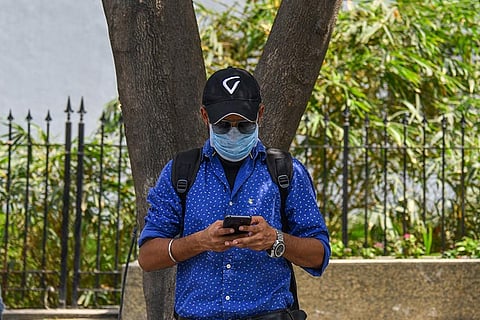

It’s been two days since India reported two fresh cases of the novel coronavirus, a number that has since risen to 28 confirmed cases as of Wednesday. And even as the governments - the Centre and state- attempt to contain the virus, fear and panic has spread among residents.
One viral Whatsapp forward doing the rounds in Telangana is a picture of the coronavirus patient in hospital without his face blurred, along with the text, “The guy who is scaring Hyderabad now”. Another is a screenshot of a WhatsApp conversation discussing a suspected case of coronavirus - identifying the person and their place of work.
Besides inducing panic and fear-mongering, these WhatsApp forwards and media reports are also dangerous because they breach privacy and patient confidentiality. And while health officials in Telangana and Karnataka kept under wraps the name of the techie, who tested positive for coronavirus, this hasn’t stopped social media from speculating the identity. The consequences of this are many - naming, shaming and blaming the patient, and stigmatising the individual and those around him.
There are many reasons for this rumour-mongering. A trust deficit in our health system, institutions and officials is one of the primary reasons for this state of panic. It’s critical that the governments - Centre and state - communicate regularly with the public and be transparent about the outbreak. At a time when fake news spreads faster than any contagion, it's equally crucial that official communication be centred on fact and science.
The World Health Organisation (WHO) notes that the consequences of losing the public's trust can be severe in health, economic and political terms. “Abundant research and prominent public health examples support the hypothesis that the less people trust those who are supposed to protect them, the more afraid the public will be and less likely they will be to conform their choices and behaviour with outbreak management instructions,” states the WHO in a 2005 paper for outbreak communication guidelines.
But WHO also emphasises that the rights of the citizen must be weighed against the public good and the need for information. “Announcing the limits of transparency publicly, and explaining why those limits are being set, is usually well tolerated provided the limits are justified. But if limits to transparency become excuses for unnecessary secretiveness, the likely result will be a loss of public trust,” says the WHO.
It’s not just decision-makers who have to do their bit to build, restore and maintain public trust, the media and those on social media need to act responsibly and ethically. The need to know/divulge the specifics of a case may be in the interest of protecting oneself from the virus. But very often this need for information crosses the line, and becomes nothing more than gossip for the public, while compromising the patient’s privacy.